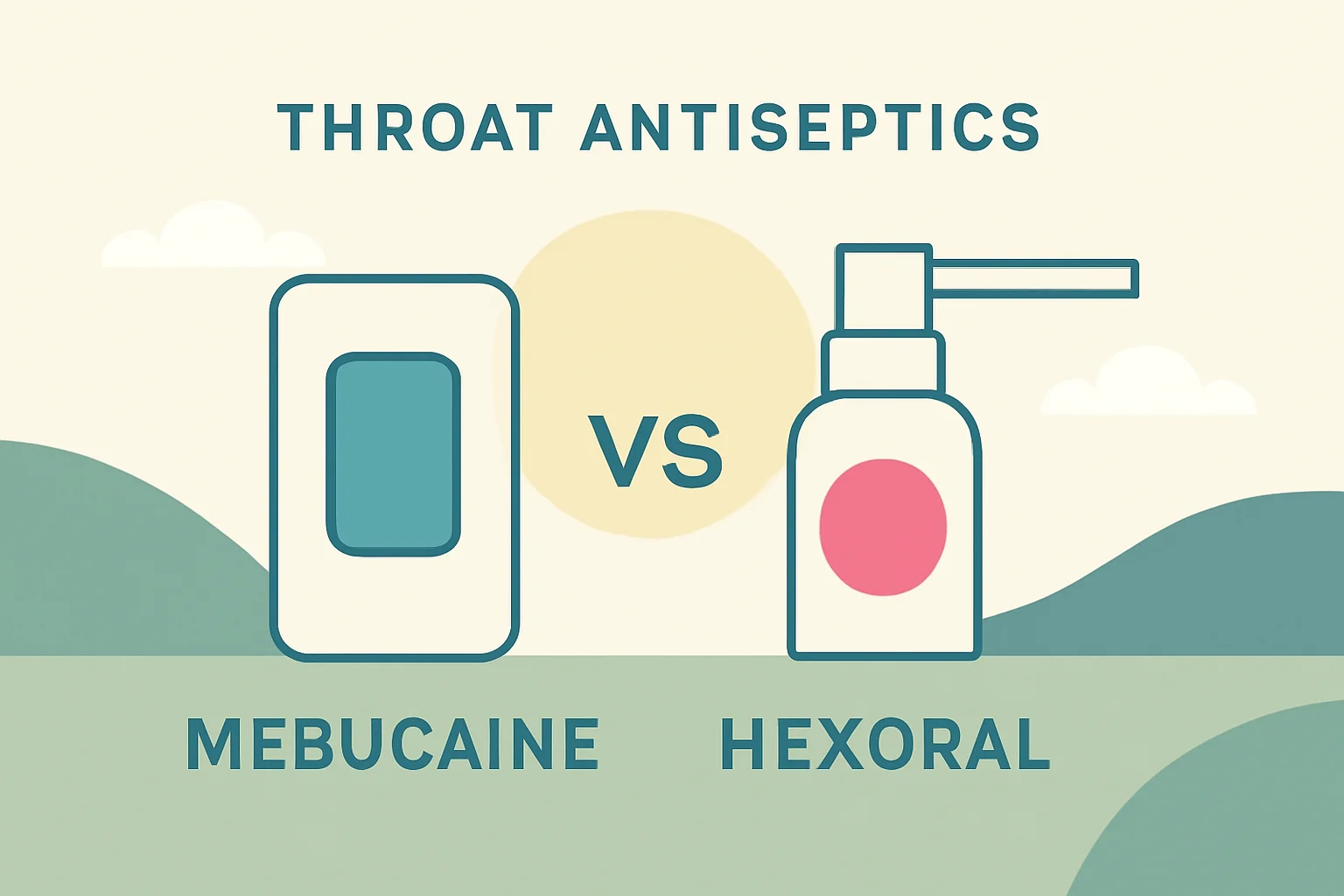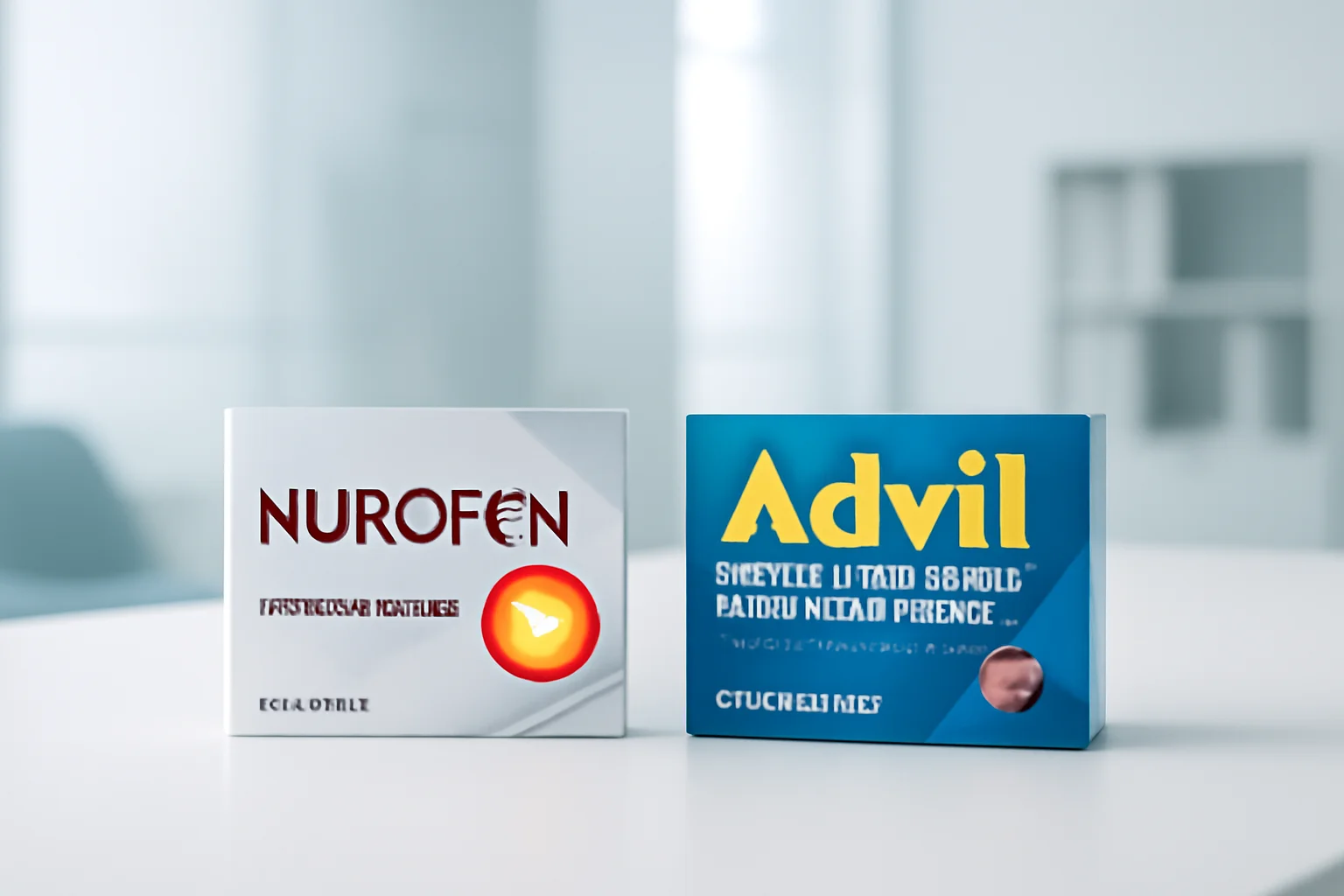
Mebucain or Hexoral: Which is the more effective throat disinfectant?
A maintaining oral health is of paramount importance, as problems in the mouth can cause not only discomfort but also lead to more serious health issues. Various oral diseases, such as sore throat, gingivitis, or oral thrush, are common complaints that can complicate many people’s lives. There are numerous medications and products available on the market that can help treat oral problems. Two popular products, Mebucain and Hexoral, may be familiar to many, but which one is the better choice?
Mebucain: Active Ingredients and Application
Mebucain is a local anesthetic and anti-inflammatory medication primarily used to treat oral problems such as sore throat, gingivitis, and mouth ulcers. Among its active ingredients is benzocaine, a local anesthetic, and chlorhexidine, which has antimicrobial properties.
The effect of Mebucain is felt quickly, as benzocaine provides immediate pain relief. This can be particularly important for those suffering from severe sore throats or mouth ulcers. The presence of chlorhexidine helps destroy bacteria, thereby reducing inflammation and promoting healing.
Using Mebucain is extremely simple: the product can be used in the form of lozenges. The tablet should be slowly dissolved in the mouth so that the active ingredients come into contact with the painful area for as long as possible. However, it is important not to use Mebucain long-term, as excessive use can cause irritation in the oral cavity.
Although Mebucain can be an effective solution for many people with oral problems, it may not be suitable for everyone. Pregnant and breastfeeding women, as well as children under 12, should always consult a doctor before using the product.
Hexoral: Mechanism of Action and Areas of Use
Hexoral is another popular product used to treat oral problems. Its main active ingredient is hexetidine, which also has antimicrobial effects. Hexoral can be effective not only against bacteria but also against fungi and viruses, providing broad-spectrum protection against oral infections.
Using Hexoral is also simple: it is available in mouthwash form, which can be used several times a day. During mouth rinsing, hexetidine reaches all areas of the oral cavity, effectively helping to treat inflammation. Additionally, Hexoral can help freshen breath, which can be beneficial for those struggling with bad breath issues.
The use of Hexoral is recommended not only for sore throats or gingivitis but also after oral surgeries, as it can reduce the risk of infection and promote the healing process. However, as with any medication, moderation is important: excessive use can cause irritation of the oral mucosa.
Hexoral is considered safe for most people, but pregnant and breastfeeding women, as well as children, should consult a doctor before use.
Which is the Better Choice? Mebucain or Hexoral?
The choice between Mebucain and Hexoral is closely related to individual needs and the specific problem being faced. If quick pain relief is needed, such as in the case of severe sore throat, Mebucain may be the better choice, as the benzocaine it contains has an immediate effect.
On the other hand, if a broad-spectrum solution is needed that addresses not only pain but also inflammation and infections, Hexoral may be the more appropriate option. Hexoral provides more extensive protection against oral infections and can be used in the long term.
It is important to note that both products have their advantages and disadvantages, so to make the best decision, individual circumstances should be taken into account, such as existing health issues, allergic reactions, and treatment needs. To find the best solution, it is always advisable to consult a doctor or pharmacist.
Alternative Solutions for Treating Oral Problems
Although Mebucain and Hexoral can be effective solutions for treating oral problems, there are also alternative methods and natural remedies that can help reduce pain and inflammation. For example, gargling with salt water can help kill bacteria and reduce inflammation.
A mixture of honey and lemon can also be effective for sore throats, as honey has natural antibacterial properties, while lemon is rich in vitamin C, which boosts the immune system. Additionally, rinsing with chamomile tea or sage tea can help reduce inflammation and alleviate oral irritation.
Proper hydration also plays a key role in maintaining oral health, as a dry mouth promotes the growth of bacteria. Regular water consumption and the use of moisturizing oral care products can help maintain the optimal condition of the oral cavity.
In conclusion, it is important to mention that maintaining proper oral hygiene, which includes regular tooth brushing and the use of dental floss, is essential for preventing oral problems.
Warning: This article does not constitute medical advice. Always consult your doctor for health issues!

